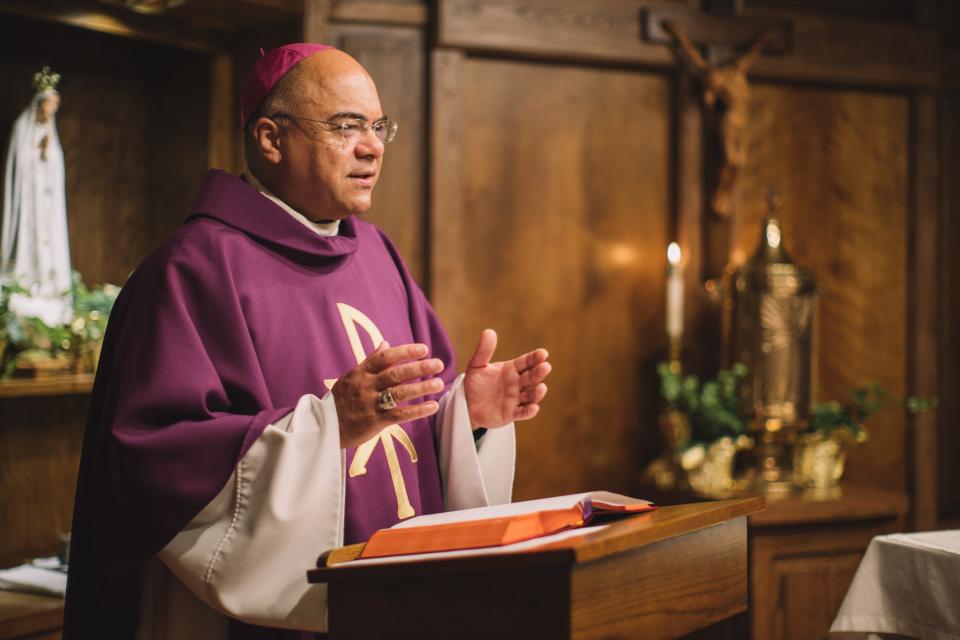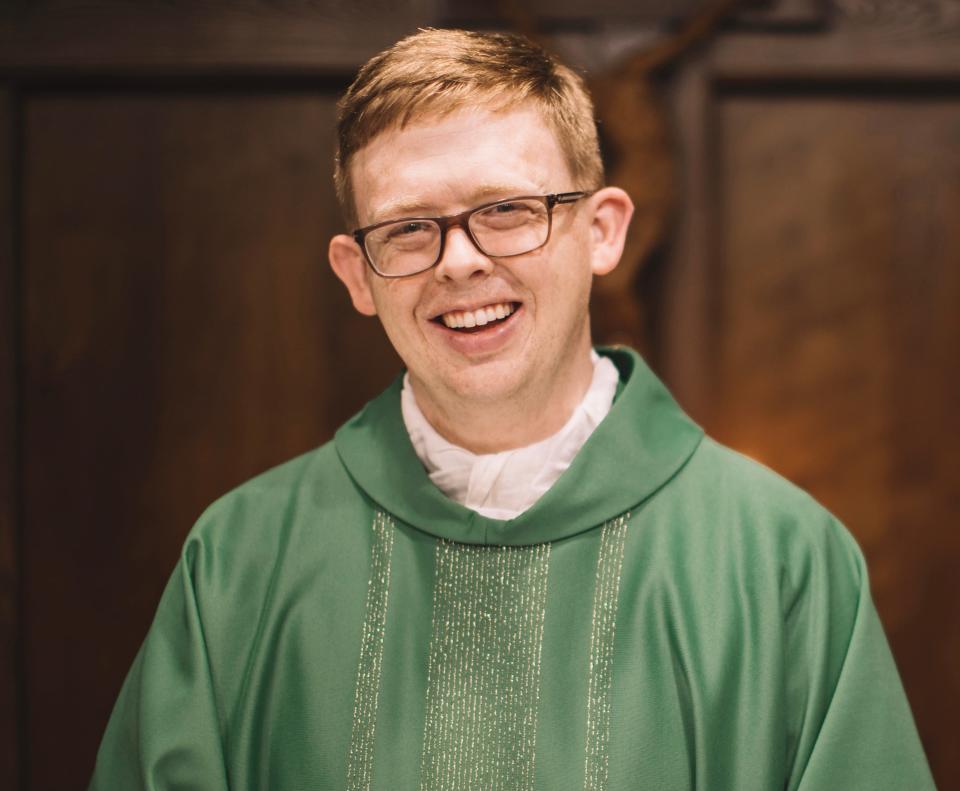Is eating meat on Friday during Lent a sin? Houma-Thibodaux church leaders, parishioners weigh in
- Oops!Something went wrong.Please try again later.
Editor's note: This story was originally published Feb. 20, 2021, and available only to subscribers. We've made it available to all readers as this year's Lenten season begins. If you are not yet a subscriber, please consider becoming one here.
After a Mardi Gras season that wasn't, and with the coronavirus pandemic still raging, local Catholics may ask what, if anything, is different in their traditional observance of Lent in 2021.
The short answer is not much.
About 90,000 Catholics live in Terrebonne, Lafourche, Grand Isle and Morgan City, the area covered by the Diocese of Houma-Thibodaux.
One key aspect of Lent will be observed as usual this year, said the Rev. Patrick Riviere, director of the diocese's Office of the Priesthood.
“Yes, it’s a sin to eat meat on Fridays during Lent,” Riviere said. “The Church does ask Catholics to abstain from eating meat on Fridays during Lent.”
What is considered seafood?: During Lent, alligator, beaver and more make the cut
Last year, due to COVID-19 and Louisiana's stay-at-home mandates, Houma-Thibodaux Bishop Shelton Fabre waived the obligation to abstain from eating meat for the fourth and fifth Fridays of Lent due to those hardships.
"There are those who, due to the current challenges from the pandemic and stay-at-home order, might find it burdensome to enter into the practice of abstaining from meat," he said at the time.
But the 2020 waiver, or dispensation, was not universal.

"For those who are able to keep this practice, I encourage you to continue to fulfill this obligation for your spiritual benefits and the good of the Church," he said.
The state has since lifted the restrictive stay-at-home orders.
“Since these circumstances no longer exist at present, there is no need at this time during Lent 2021 for the same dispensation,” Fabre said last week.
The Church asked Catholics to abstain from eating meat on Fridays during Lent in memory of Good Friday, the day the Bible says Jesus died on the cross, Riviere said. Meat was chosen as a sacrifice because it was a celebratory food. By abstaining, Catholics can share a common experience in remembrance of Jesus' sacrifice.
The Courier and Daily Comet asked Catholics on Facebook whether they follow the practice or view not doing so as a sin. The question drew more than 300 responses.
“Catholic teachings tell us to refrain from eating meat on Fridays as an act of penance," Sheila Wolf LeBouef wrote. "Friday is a day of penitence, as it is believed Christ died on a Friday. Everyone has the right to either eat meat or not. I choose not to.”
“It's a sin not taking your own spirituality seriously," Christopher Shane commented. "That you trade red meat for fried shrimp, or boiled crawfish, etc. is a joke, and deep down you know it's true. Such a luxurious sacrifice doesn't actually make sense. Being honest with yourself about it is probably a better sacrifice, a sacrifice of hand-me-down traditions, beliefs and social acceptance.”
'It's a time to get serious': Terrebonne and Lafourche observe Ash Wednesday 2022
"I agree with you that it’s better to find an alternate way to honor the sacrifice that Jesus made for all of us if you choose not to follow a traditional path," Greg Szanyi responded.
"It’s meant to be a form of penance," wrote Mary Beth Guidroz Gast. "I understand we live in a celebratory culture, but going out to splurge on seafood or eating crawfish isn’t the intention for Lenten days of fasting."
"I don’t think it’s a sin," said Christy Walker. "It’s more of a sacrifice. I don’t eat meat on Wednesdays or Fridays during Lent. That’s how my mom was raised, and that’s how she raised us."
Lent, which began Ash Wednesday, Feb. 17, and ends on Easter, April 4, is a period when Catholics focus on growing spiritually and refocus their faith with God. The three traditional practices Catholics are called to observe during Lent are prayer, fasting and almsgiving, or charity.

Riviere said he personally applies this through prayer, reciting specific devotions to Jesus' mother, Mary. He reflects on where he sees God in his actions and where he might have turned away from God. On days of fasting, Wednesdays and Fridays, he limits unnecessary screen time and gives to charity or helps people in need.
In a year of hardship, Fabre said penance and self-denial during Lent is still important.
“As we did last year during Lent, I think this season of Lent is another opportunity along with our penitential practices to enter into the coronavirus restrictions from a spiritual perspective and to allow the season of Lent to again speak to our hopes rooted in the risen Jesus Christ,” Fabre said.
Riviere said the pandemic has put Lent in a different light.
“This year, there has been a lot of hardship, so the invitation is particularly for Lent is less so about, 'What more can I do?' and more of, 'We have had hardships imposed on us, so am I entering into those hardships well?’ ” Riviere said. “God is present in every experience, and every experience is an opportunity for growth and an opportunity for grace.”
This article originally appeared on The Courier: Is eating meat on Friday during Lent a sin? Locals weigh in

